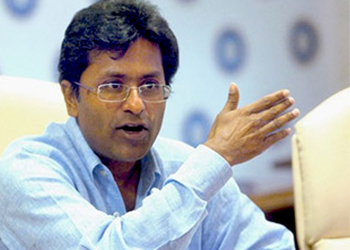New Delhi, Jun 20: Lalit Modi blamed N Srinivasan for violation of forex laws while organising the Indian Premier League (IPL), but the Board of Control for Cricket in India (BCCI) ex-chief said they were “taken for a ride” by the IPL former boss, according to their interactions with law enforcement agencies.
 The mutual animosity they harbour is evident in Modi's responses to agencies like the Enforcement Directorate (ED) and Directorate of Revenue Intelligence.
The mutual animosity they harbour is evident in Modi's responses to agencies like the Enforcement Directorate (ED) and Directorate of Revenue Intelligence.
Srinivasan's remarks against his rival are recorded in a Parliamentary Standing Committee report and a complaint he filed against Modi in Chennai.
In almost all responses, lawyers on behalf of Modi harped on the same themes, saying there was no personal allegation against him, and that Srinivasan played a “key role” in decision-making. The cases included remittance of Rs 88.48 crore to International Management Group, transaction of Rs 243.45 crore between BCCI and Cricket South Africa and acceptance of Performance Deposit from an NRI investor in Rajasthan Royals, all RBI permission. Irregularities in awarding media rights to MSM-WSG were also probed.
Modi, Srinivasan and other BCCI officials were also issued show-cause notices related to FEMA violations. An ED report said Modi was responsible for the conduct of IPL and had “full knowledge and awareness of the nature of transactions between BCCI and foreign parties”. It also found fault with Srinivasan, saying he failed to take prior permission of RBI as required under FEMA before accepting deposit from people residing abroad.
Modi's stock argument was that Srinivasan was the treasurer of BCCI when IPL started. “Without he being at the centre of decision-making, being in-charge of and responsible for all financial matters, none of these decisions could have been made,” he said, adding that taking permission from RBI was his responsibility.
He also said Srinivasan, as de facto owner of Chennai Super Kings and BCCI office-bearer, knew about the workings of IPL, and was at all times “personally interested in its pecuniary and financial matters”.
Modi also went on to say that after becoming BCCI secretary, Srinivasan routed all financial matters to the treasurer through his office.
On his part, Srinivasan had told the Parliamentary Standing Committee on Finance in 2011: “We were taken for a ride. Unfortunately, there was too much of power given to him. Was he above the IPL at that time? The powers given to him were like that, and that is how he acted.”





Comments
Add new comment